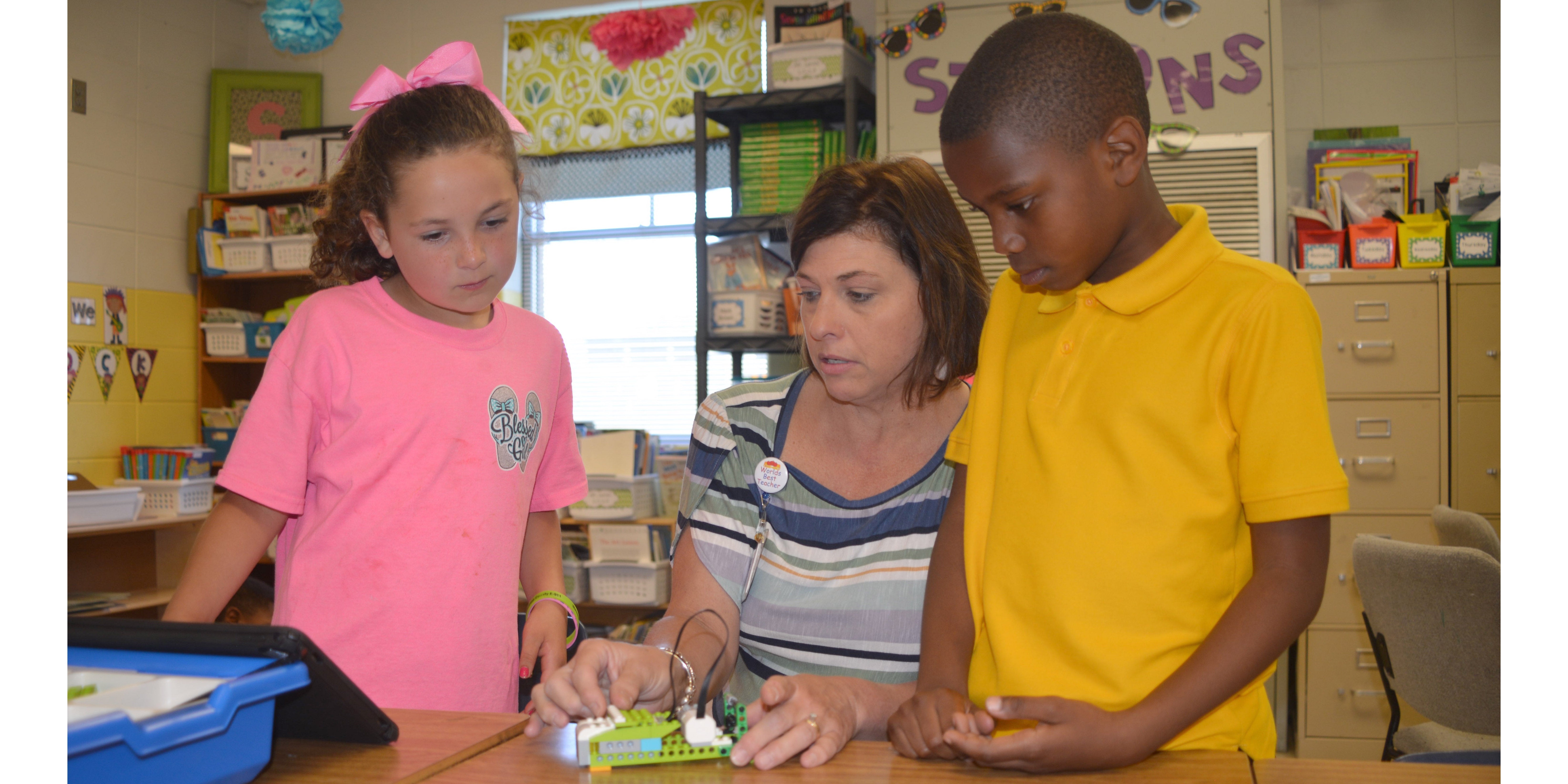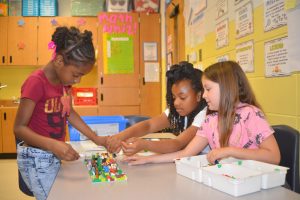Classroom Grants: Westside students enter world of STEM
Published 3:31 pm Friday, June 7, 2019

- Jacobie Kemp and Ashton Overton, along with teacher Terri Speegle, place code into an iPad to make a class project fully operable.
|
Getting your Trinity Audio player ready...
|
(Editor’s Note: This is the first in a four-part series highlighting the impact of Demopolis City Schools Foundation’s classroom grants.)
Terri Speegle, a second-grade teacher at Westside Elementary School, has been awarded multiple grants that relate to her push for STEM learning in the second grade. Each one builds on top of the other for a curriculum model that fits with every subject — and it wasn’t even on purpose.
“Education has to change with the times and continue to be current. That was what I felt the biggest need was when I wrote the grant.” Speegle explained.
Speegle’s first STEM grant at WES was four years ago, during her last year as a reading coach, when she noticed there was a hole to fill.
“I saw that we had a great need for STEM in our school,” she said.

From left, Na’Kylah Jones, Cailyn Bryant and Reese Gay create a scene where volunteers are helping each other clean a littered park.
Speegle saw a near future where students were coding and using robots and drones at U.S. Jones Elementary School and a distant future where more and more jobs were becoming intertwined with technology and other STEM fields. To prepare the students at Westside, Speegle wrote and was awarded a grant for STEM kits to be given to every grade in the school. In just its first year, the grant touched over 500 students.
The Real-World STEM Challenge Kits from Lakeshore present three challenges that small groups of students solve with reusable materials, such as designing a dam or building a bridge. In the year following her first grant, Speegle and other community partners created a STEM resource room filled with various materials, including corndog sticks from Foster Farms, to be used in STEM-related projects.
Her next grant — when she was officially a second-grade teacher — was for the Lego StoryStarter Kit. The kits consist of Lego blocks used so the students work together to create stories, re-enact scenes to test reading comprehension and increase communication skills.
“Reading is more than just reading orally. It encompasses a lot of different skills,” Speegle said.
WeDo 2.0 was also included in her second grant. Legos and other spare parts comprise the kits and are used to create robots, which are controlled through a special coding program that uses icons rather than text.
The Demopolis City Schools Foundation, which awarded the grants, have been strong backers of Speegle’s push towards STEM.
“This grant was just the next logical step in the process of using Legos, which almost all kids love, to enhance learning,” said DCSF Executive Director Amanda Barnes.
Barnes adds that the grant will benefit students for years to come and the DCSF will be able to track its impact.
Updated technology, like new iPads, was purchased with the latest grant.
With the Lego-heavy STEM resources used in relation to almost every subject taught at WES, Speegle’s students develop skills in reading comprehension, critical and creative thinking and communication.
“Children learn a lot through play. But at school it needs to be a guided play,” Speegle said.
While the students worked in small groups thinking of ways to combat litter, Speegle began helping two students build the class’ first-ever dump truck by following the digital directions in the WeDo 2.0 program. As all the parts came together, more and more students gathered as Jacobie Kemp and Ashton Overton finished the code on an iPad to make it operable. When it worked and tiny plastic rocks tumbled out of the dump truck, the class cheered.
The early introduction to technology like robotics —even if they are made out of plastic blocks — creates a foundation for students to learn more difficult skills and enter the workforce after graduation. Even the soft skills, like problem-solving and communication, primes each student for success.
“It’s never too early to get them prepared for the real world after school,” Speegle said.
Speegle is not the only one thinking of the future. Nathan Sprinkle, while pouring over his StoryStarter Legos to create a scene of Lego people picking up plastic litter, said he wasn’t nervous about expanding his robotics skills into upper elementary. “I’m ready for it,” he proclaimed.
The soft skills are coming along too, as Reese Gay will tell it.
“My imagination got better. I can see what I want to do,” she said.
Reese and her classmates — Cailyn Bryant and Na’Kylah Jones — were creating a scene where volunteers are helping each other clean a littered park. As they bounced ideas off one another, the scene came to life with the blocks.
Though Speegle shared concerns about the teachers not being able to use the STEM kits to their full capabilities, she said the students have done so well they’ve surprised even themselves.
“It is allowing them to have hands-on problem-solving experiences using their critical thinking, their interpersonal skills, and it’s laying a foundation for future years to come in their education career.”
(This article originally appeared in the Wednesday, June 5 issue of the Demopolis Times.)

